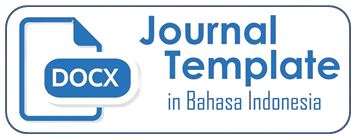UJI KELAYAKAN MODUL BERBASIS SELF HELP BOOK TERHADAP MOTIVASI BELAJAR SISWA KELAS VIII SMPN 1 CIRACAP
DOI:
https://doi.org/10.22460/fokus.v7i3.12086Keywords:
Self help book, Learning MotivationAbstract
The purpose of this study was to determine the results of the validation of the feasibility of the self-help book-based module on learning motivation. Technical analysis of data using Microsoft Excel which is then analyzed descriptively. Instruments in the self-help book-based module validation assessment include the suitability of the material, the suitability of the design, instructions for use of the self-help book-based module and the benefits of the self-help book-based module to students. The results showed that the results of the self-help book-based module feasibility test conducted by 3 validators stated that the self-help book-based module was in the "very feasible" category with the results of the evaluation of material experts 95%, media experts 95.31%, and experts practitioners 95.45%. Subjects in this study amounted to 6 students for the limited test, and the broad test 24 students. The results of the assessment for the limited test obtained a score of 96.66% with the self-help book-based module product category very feasible to use, the wider test results obtained an assessment score of 85.54% which was in the very suitable category for use. Based on the results of expert assessments, and limited tests along with the extent of the feasibility test of the self-help book-based module on student learning motivation, it was declared feasible to be used by class VIII students of SMPN 1 Ciracap.
References
Bergsma, A. (2008). Do self-help books help? Journal of Happinnes Studies, 9(3),341-360.
Borg dan Gall. (1983). Educational Research, An Introduction. New York and London Logman Inc.
Fatimah Azzahra, M., Lestari, R., & Psi, S. (2021). Hubungan antara dukungan sosial dengan perilaku proposional pada pelaku usaha mikro dimasa pandemi covid-19( Doctoral dissertation, Universitas Muhammadiyah Surakata).
Fauzan, M. (2021). Pengembangan modul inovatif dalam bahasa arab. Prosiding Konferensi Nasional Bahasa Arab, (7), 643-654.
Fitri, I. (2017). Peningkatan Self efficacy terhadap matematika dengan menggunakan modul matematika kelas vii smpn negeri 2 bangkinang. Jurnal Cendekia: Jurnal Pendidikan Matematika, 1(2), 25-34.
Maslow, A. H. 1943. A Theory of human motivation, psychological Review.50.
McKenny, S., & Thomas, R. C. (2013). Counducting educational design research. In Educational Media International (Vol. 50, Nomor 3). Routledge.
Pranjani, MH, Samsudin, A., & Septian, MR (2022). Gambaran Motivasi Belajar Peserta Didik pada Pembelajaran Daring Selama Pandemi Covid 19. FOKUS (Kajian Bimbingan & Konseling dalam Pendidikan) , 5 (1), 33-43.
Shulhany, M.A, dkk. (2015). Pengembangan Bahan Ajar Dimensi Tiga dengan Pendekatan Scientific untuk Siswa Prosiding Seminar Nasional Matematika dan Pendidikan Matematika UMS 2015
Uno, H.B. 2007. Teori Motivasi dan Pengukurannya. Jakarta: Bumi Aksara.2011. Model Pembelajaran : Menciptakan Proses Belajar Mengajar yang Kreatif dan Efektif. Jakarta: Bumi Aksara.
Widodo, Cosmin S. & Jasmadi. (2008). Panduan Menyusun Bahan Ajar Berbasis Kompetensi. Jakarta: PT Elex Media Komputindo.
Zaharah, Z., & Susilowati, A. (2020). Meningkatkan Motivasi Belajar Peserta Didik Dengan Menggunakan Media Modul Elektronik Di Era Revolusi Industri 4.0:(Improving Students' Learning Motivation through Electronic Module Media in the Industrial Revolution 4.0). BIODIK, 6(2), 145-158.
Downloads
Published
Issue
Section
License
Copyright (c) 2024 FOKUS (Kajian Bimbingan & Konseling dalam Pendidikan)

This work is licensed under a Creative Commons Attribution-ShareAlike 4.0 International License.













